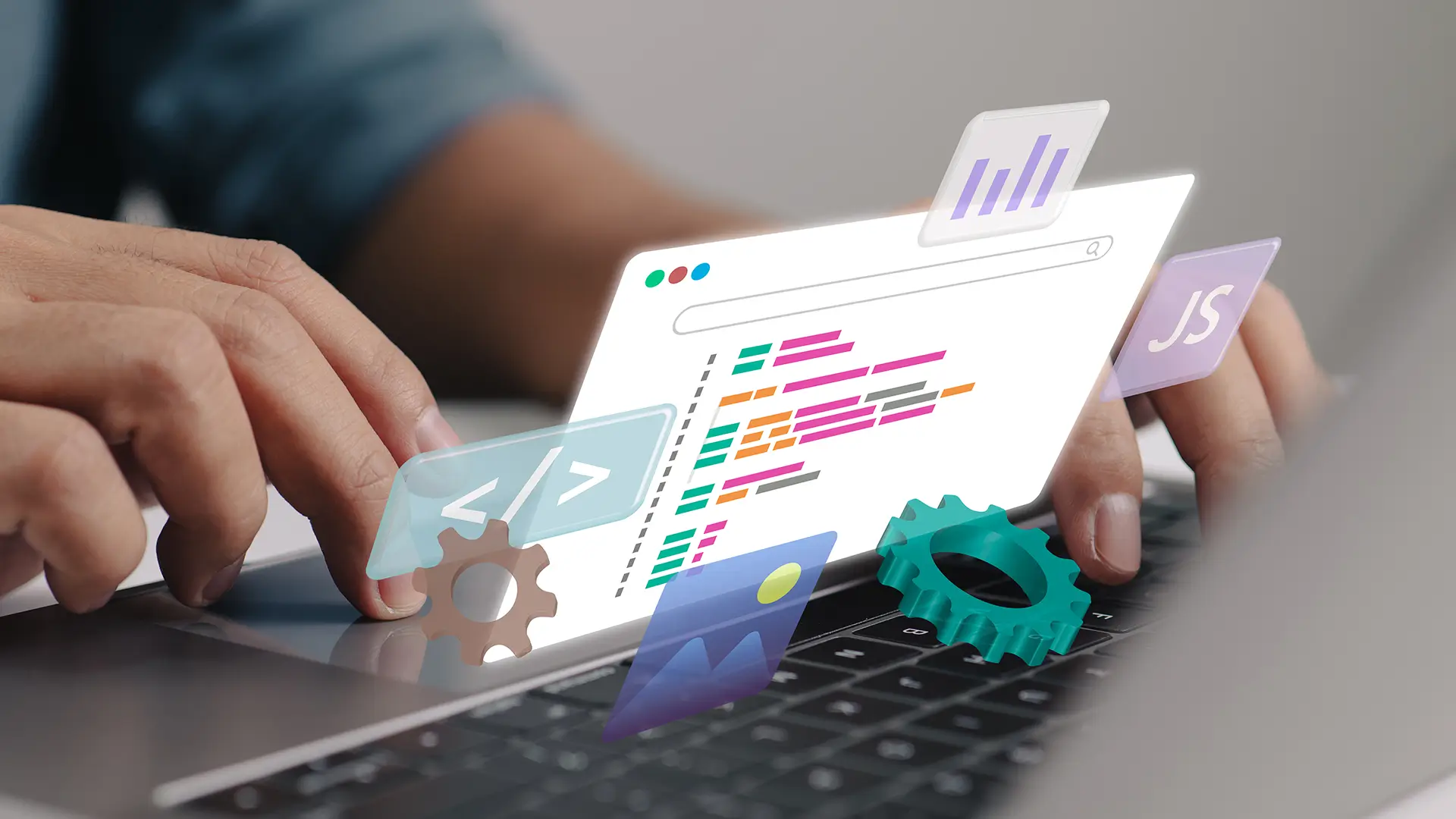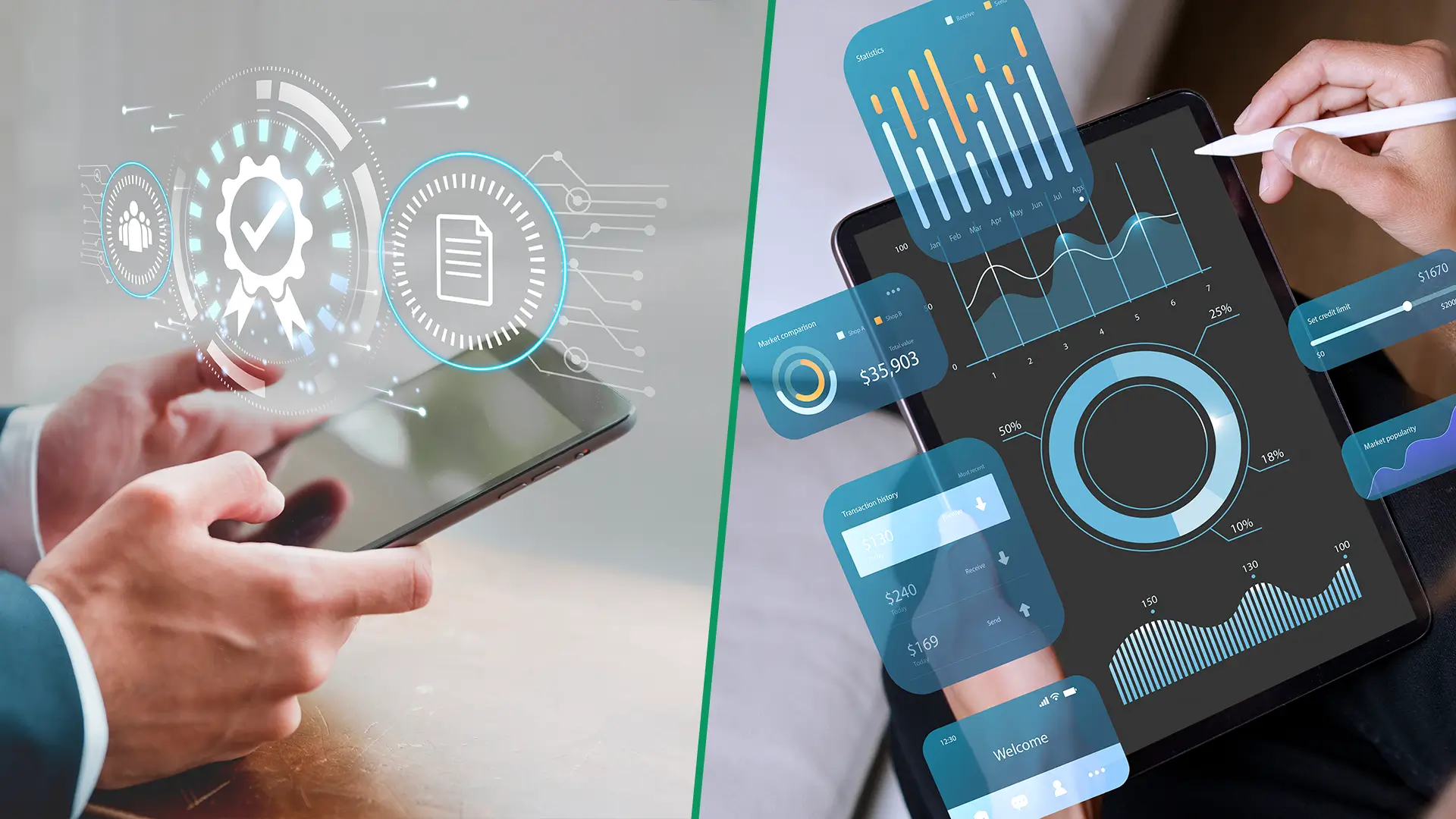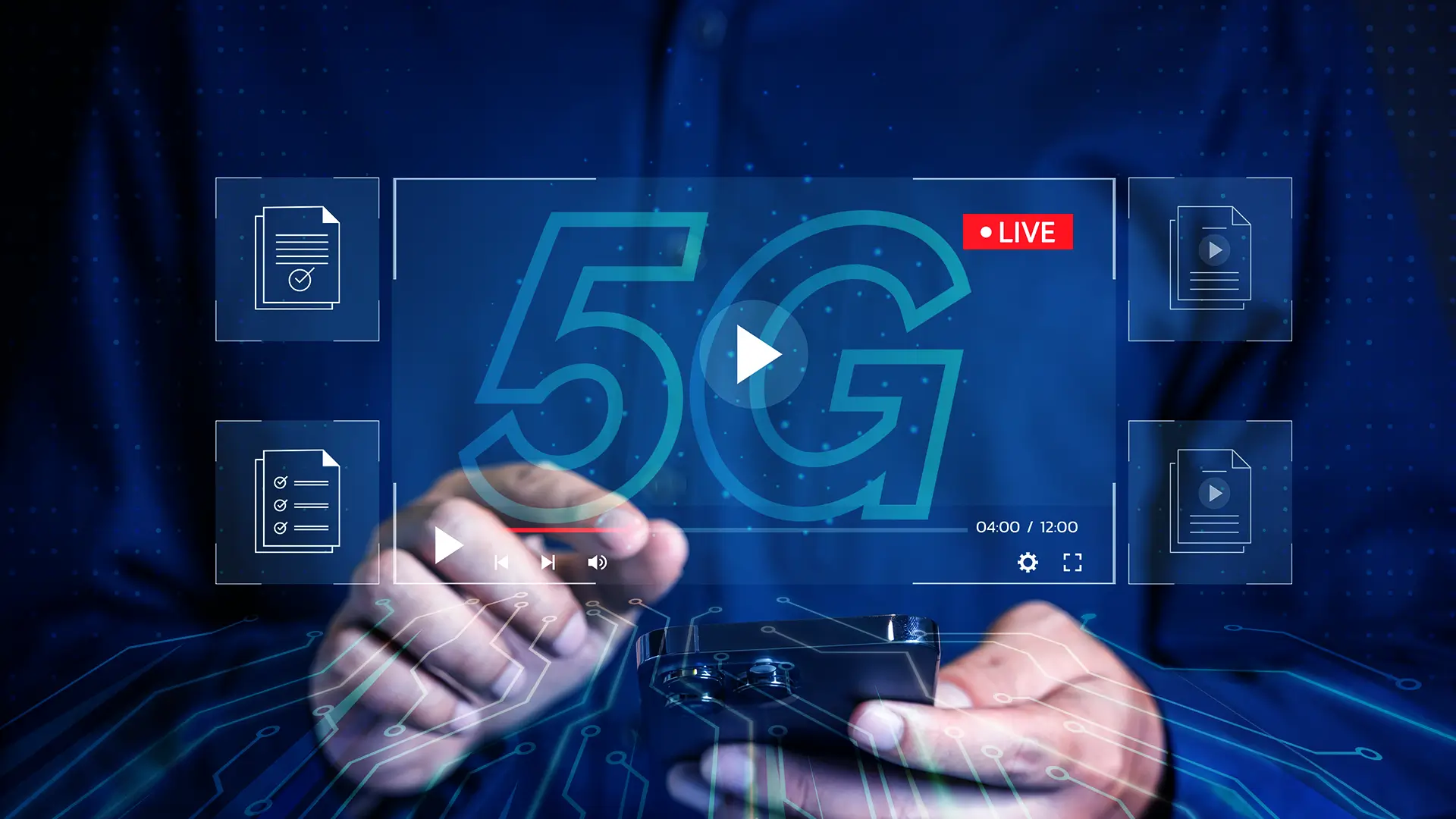AI-Powered Key Takeaways
Retail has moved beyond its conventional brick-and-mortar shape, illustrating today's extensive digital footprint. Retail and e-commerce brands cater to a humongous amount of online demands, making it crucial for them to deliver seamless experiences to consumers across different platforms. Especially when it comes to mobile platforms, which are one of the most used, companies need to test them end-to-end to ensure optimal performance and functionality. To achieve optimal performance and functionality, companies must engage in comprehensive e-commerce mobile experience testing, monitoring, and mobile shopping experience testing to ensure brands deliver a seamless interaction with their mobile apps and websites. By rigorously testing the mobile shopping experience, companies can identify and address issues proactively, minimizing frustrations and cart abandonment while maximizing customer satisfaction and loyalty.
E-commerce mobile experience monitoring: What does it cover, and why is it important?
E-commerce mobile experience monitoring is a critical practice that involves tracking and analyzing various aspects of a mobile app or website's performance and usability. This refers to the practice of systematically observing, measuring and assessing the performance and usability of a mobile app or website within the context of online retail (e-commerce). It involves the continuous surveillance and evaluation of various aspects of the mobile user experience to ensure that customers can navigate, interact with, and transact on the platform seamlessly and with satisfaction.
Key components of e-commerce mobile experience monitoring include:
- Performance metrics: This includes tracking loading times, response times, and overall app responsiveness. Monitoring performance ensures that pages and features load quickly and efficiently.
- User navigation: It examines how users navigate through the app or website, focusing on ease of use, intuitiveness, and the accessibility of key features.
- User interface (UI) testing: It helps evaluate the app's design, layout, and visual elements to ensure they align with user expectations and usability standards.
- Compatibility testing: It checks how well the app functions across various devices, screen sizes, and operating systems to ensure a consistent user experience.
- Functional testing: This covers testing the functionality of the app, including features like product searches, shopping cart management, and payment processing, to ensure they work flawlessly.
Why is e-commerce mobile experience monitoring crucial?
Mobile devices are integral today, and this shift has had a profound impact on the world of e-commerce. The mobile experience has become a critical factor in the success of online retail businesses. Here are some reasons why the mobile experience is of utmost importance in e-commerce:
Widespread usage of mobile devices: A significant percentage of online shoppers now use smartphones and tablets to browse and make purchases. This trend is likely to continue growing. Failing to cater to mobile users means missing out on a substantial customer base.
App integration: Many e-commerce businesses develop mobile apps to enhance the shopping experience. These apps can provide personalized recommendations, push notifications, and a smoother overall experience, further increasing customer engagement and loyalty.
Some crucial business aspects that benefit from good mobile experiences include:
● Customer satisfaction
Enhanced user experience: A seamless and user-friendly mobile experience satisfies customers, making them more likely to return for future purchases.
Reduced frustration: By identifying and resolving issues promptly, monitoring minimizes user frustration and ensures a positive shopping experience.
Higher retention rates: Satisfied customers are likelier to become loyal, increasing retention rates and lifetime value.
● Conversion rates
Reduced cart abandonment: A smooth mobile experience reduces the likelihood of users abandoning their shopping carts due to performance or usability issues.
Improved checkout process: Monitoring helps streamline the checkout process, making it quicker and more straightforward, which can significantly boost conversion rates.
● Competitive edge
Stand out from competitors: In a crowded e-commerce market, a superior mobile experience can set your brand apart from competitors, attracting more users and potential customers.
Higher customer loyalty: A better mobile experience fosters customer loyalty, ensuring that users return to your platform rather than switching to competitors.
● Brand reputation
Positive impressions: Providing an excellent mobile experience creates a positive brand impression, leading to positive reviews and word-of-mouth recommendations.
Brand trust: Customers are likelier to trust and engage with brands that prioritize user experience, leading to a stronger brand reputation in the long run.
● Data-driven improvements
Informed decision-making: Monitoring provides valuable data and insights about user behavior and performance metrics. This enables businesses to make data-driven decisions for ongoing optimization.
Continuous improvement: Armed with data, businesses can identify areas of improvement and prioritize enhancements to continually elevate the mobile experience.
Also read: From browsing to buying - The importance of omnichannel retail performance testing for businesses
Improving e-commerce app performance: how HeadSpin transformed user experience
In the highly competitive world of e-commerce, ensuring a seamless and speedy mobile app experience is nothing short of paramount. That is where HeadSpin, a game-changing platform, steps in. Here's how a prominent e-commerce company leveraged HeadSpin's solutions to enhance its app performance and, ultimately, the user experience.
The objective — improving user experience
The leading e-commerce brand had its sights set on two primary objectives:
- Analyzing launch time and performance regression: The company aimed to scrutinize the app's launch time and identify any performance regressions. To achieve this, they turned to HeadSpin's cutting-edge platform.
- Identifying bottlenecks and app crashes: To ensure smooth functionality, uncovering the root causes of app crashes and performance bottlenecks was crucial. This required a powerful tool that could provide in-depth insights.
The HeadSpin solution
The company deployed HeadSpin's NimbleApp, a solution tailored for retail application testing, to comprehensively analyze its app's performance. Following are the benefits the company could garner with HeadSpin:
- Performance regressions identified: With HeadSpin's NimbleApp, the company identified not one but two serious regressions in its app. These regressions were swiftly addressed, preventing potential disruptions for users.
- Crucial bottlenecks detected: NimbleApp didn't stop at regressions; it also helped the company pinpoint various bottlenecks that were hindering optimal performance. These insights proved invaluable for optimization efforts.
- Reduced app load time: One of the standout achievements was the reduction in the app's load time. Thanks to HeadSpin's retail application testing solution, the company's app became faster and more responsive.
What are HeadSpin's key capabilities in improving user experiences for e-commerce brands?
HeadSpin plays a pivotal role in enhancing mobile experiences for e-commerce by leveraging AI driven testing and monitoring capabilities that address various aspects of mobile app performance, usability, and customer satisfaction. Here's how HeadSpin contributes to improving mobile experiences in the e-commerce sector:
● Proactive bug/error detection: HeadSpin's ML capabilities enable testers to quickly triage high-priority issues that impact customer experiences. With real-time performance data and alerts, e-commerce brands can eliminate potential issues that may disrupt the user experience. This proactive approach ensures smooth and uninterrupted shopping experiences for customers.
● Custom KPI-tracking: HeadSpin enables e-commerce brands to track and analyze critical KPIs that directly impact user experiences. Whether it's page load times, conversion rates, bounce rates, or user engagement metrics, HeadSpin provides the data and analytics necessary to optimize these KPIs for an enhanced user experience.
● Testing on a diverse set of real devices: The diversity of devices used by consumers is ever-expanding. HeadSpin's platform offers testing on a wide range of devices, including smartphones, tablets, and different operating systems. E-commerce brands can be confident that their websites and apps will function flawlessly across a variety of devices, catering to a broader audience. Moreover, HeadSpin enables testing across 50+ locations worldwide, allowing companies to evaluate how their apps perform in different regions. This helps identify latency issues and ensures that content loads quickly for users worldwide.
● Customized customer experiences: HeadSpin excels in tailoring customer experiences for e-commerce brands. By providing deep insights into user behavior, preferences, and interactions, HeadSpin allows brands to customize their apps and websites to match individual customer expectations. Personalization drives engagement, boosts conversions, and fosters customer loyalty.
● End-to-end scenario analysis: Ensuring proper integration across various touchpoints is critical for e-commerce success. HeadSpin's capabilities include comprehensive end-to-end scenario analysis, allowing brands to evaluate the seamless flow of user interactions from browsing to checkout. This ensures that all components work harmoniously to provide a cohesive user experience.
● Streamlined UX benchmarking: HeadSpin offers a streamlined UX benchmarking solution for e-commerce brands by enabling the following:
- Test environment selection:
Choose OS (iOS/Android/web browser), locations (50+ locations), and Networks (Wi-Fi/operators) to match user scenarios.
- Comprehensive testing:
Conduct multiple sessions per device/region.
Gather KPI data points and perform manual tests.
- Critical user journey tracking:
Monitor key journeys like login, product search, and checkout times.
- Actionable insights:
Visualize UX and performance compared to peer applications.
● Network simulation: E-commerce apps often rely on network connectivity to load product images, process payments, and fetch real-time data. With HeadSpin's network simulation capabilities, businesses can emulate different network conditions, including 3G, 4G, or even poor connectivity scenarios. This helps identify and rectify performance bottlenecks, ensuring that apps remain responsive and user-friendly regardless of network quality.
● Global testing: E-commerce businesses often cater to a global audience. HeadSpin enables testing from various geographic locations, allowing companies to evaluate how their apps perform in different regions. This helps identify latency issues and ensures that content loads quickly for users worldwide.
In a nutshell
E-commerce mobile experience monitoring serves as a proactive strategy to meet user expectations, drive business growth, and establish a brand as a leader in the highly competitive e-commerce landscape. By prioritizing the mobile user experience, businesses can unlock higher customer satisfaction, improved conversion rates, a sterling brand reputation, a competitive edge, and a data-driven path to sustained success. HeadSpin's ML-driven testing approach is comprehensive and data-driven. It allows e-commerce brands to select their ideal test environment, run tests using the HeadSpin Platform with multiple sessions, KPI data points, and manual tests, track critical user journeys, and gain actionable insights through comparative visualization. With HeadSpin, you can fine-tune your user experience, enhance customer satisfaction, and have an edge in the competitive e-commerce landscape.
FAQs
Q1. Is it possible to automate network condition testing for mobile shopping experiences?
Ans: Yes, you can automate network condition testing by using tools that allow you to script and simulate various network scenarios. Automation ensures consistent testing across different conditions.
Q2. How can testing maintain compliance with GDPR's "right to be forgotten" and data deletion requirements?
Ans: Testing can verify that user data can be securely and completely deleted when requested without leaving any traces in the system.


























.png)


























-1280X720-Final-2.jpg)






